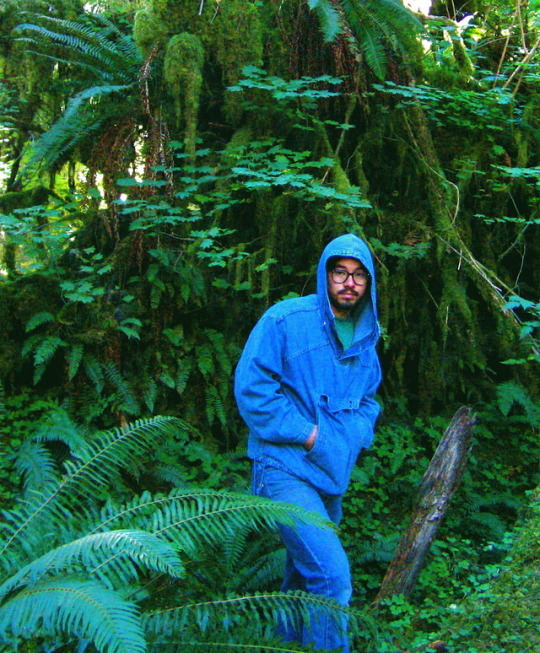#and I think it was a song about spiders but I might be misremembering
Note
It's funny you said that because. True but also dennis and dee are axtually siblings and frank is their dad. Charlie and mac just accidentally joined the worst family on earth
Okay that's pretty amusing,,, doomed by the narrative by virtue of everyone else being horrible and you not being better truly there is nothing like sitcom satire
#for better or for worse#the only one I know by name here is charlie and the only clip I know him from is the one where they're at a bar?? i think??#and he has a keyboard?#and I think it was a song about spiders but I might be misremembering#sitcoms are so fascinating to me as a genre because they only work if the characters aren't happy#idk I think that's fascinating#i used to watch a lot of those but I barely remember it#but wven as a kid I always thought they'd be funnier without the laugh track#most recent one I watched was The Nanny I actually really liked that one#it was refreshing in a way#sounds weird but it was like....it didn't feel as mean or cynical as let's say the big bang theory#that one just rubs me the wrong way#in a way I can't articulate but it feels so lazy#cobalt🐍
9 notes
·
View notes
Photo


Fresh Listen - Lovehandles, Seafoam on Speakerphone (2010)
(Some pieces of recorded music operate more like organisms than records. They live, they breathe, they reproduce. Fresh Listen is a periodic review of recently and not-so-recently released albums that crawl among us like radioactive spiders, gifting us with superpowers from their stingers.)
Sometimes the best songs say less about the convictions of the singer, and more about the secret wish that burns in the singer’s heart.
I think of Bob Dylan’s “A Hard Rain’s a Gonna Fall.” If you pierce through the trappings of the hoary soothsayer, the prophecy he raps, and yodels for emphasis, is meant to be instructive, not necessarily foretold. “I saw a newborn baby with wild wolves all around it”; “I saw a highway of diamonds with nobody on it”; “I saw a roomful of men with their hammers a-bleedin’.” Throughout the song, you can hear the naked hope that events might lead to a more promising outcome if we pay attention, apply the symbology to the reality. “Hard Rain” is a warning, but it isn’t meant as a death sentence.
You can hear the same wish in the first track of Lovehandles’s first and only collection of songs arranged as a full-length record, Seafoam on Speakerphone. Under the auspices of his musical alter-ego, Tommy Yasuhara sings, on “Do What’s Natural,” “if you hold my hand you’ll understand / it’s all part of a plan.” At first listen, it may seem that Tommy is attributing the mostly misremembered episodes of a life to a predestined narrative conceived by a higher power. As a songwriter, though, Tommy is too interested in the ambiguity of existence to propose thoughtlessly surrendering to ideology. “Do What’s Natural” is surely a leap of faith, but, in very elemental terms, it simply illustrates the minor miracles inherent in living: fresh fruit flesh, hot cocoa in a warm room while the snow builds up on the windowpane. What’s important is that conscious action is required of us—the exercise of agency—to complement any experience. To live requires participation, not surrender.
“Do What’s Natural” initiates a kind of sonic continuity on Seafoam on Speakerphone. Reminiscent of Smog’s A River Ain’t Too Much to Love in the minimalism of its arrangements—mostly an exuberantly strummed baritone ukulele with ad hoc percussion (drums and machines, handclaps) and the occasional keyboard, kazoo, or recorder for coloring. Seafoam also carries forward Smog / Bill Callahan’s penchant for humor and deep reflections with an economy of words—some of which may first seem superficial—conveying big messages.
Contrasted to Callahan’s deep-earth baritone is Tommy’s equally resonant tenor, one of the sweetest set of pipes ever to be downloaded onto MySpace. Tommy effortlessly activates his vocal cords toward yearning soulfulness, deadpan bemusement, and punk-rock outrage, sometimes within the same song.
But one of the greatest songs on Seafoam is the record’s last track (also on the SoftSpots bandcamp sampler), an instrumental called “Lost Dog.” Tommy’s voice here is replaced by a four-note whistle, which appears only at the beginning and the end of the song. In-between is a finger-picked odyssey of masterful repetition and subtle variation. These snuck-in notes may be calculated in the abstract, but they come across on “Lost Dog” as improvisatory and inspired. At the risk of overstatement, the song is a compositional and technical achievement, not only in the context of Seafoam, but the as part of the entire Lovehandles catalog (of which there are literally hundreds of songs, most of them criminally unavailable). “Lost Dog” is a Fahey-esque guitar piece that doesn’t simply ape the master—it expands the emotional potentialities of the form.
Age and growth are the subjects of “Holiday on the Holodeck,” in which Tommy imagines the perfect celebration with friends and family across multiple time periods and places, getting nearer to the essence of the past as he moves farther away from it. Unfortunately, he’s unable to successfully replicate his idealized surroundings, nor the people that inhabit his fantasy space: “I couldn’t program it,” he chants at the end, coming to grips with the impossibility of his wish.
Instrumentally, “Asian Superstore” is the fullest track on Seafoam, with busy bongos competing with a syncopated marimba, and a single maraca holding the beat together. True to its title, the song is a celebration of the family-owned food mart and its superiority over the supermarkets and price clubs that are in a constant state of being built in every neighborhood. This kind of subject matter is exactly Tommy’s cup of meat. As an artist, his point is to ensure listeners take notice of the normally overlooked treasures of our American lives.
“Ladder on Wheels” is a pointless thought experiment, partially redeemed by a brief recorder solo near the end. Tommy goes toward raw Impressionism in “Hot Water,” a meditative sketch on the potential end of a relationship. The gentle rap of the cymbals recreates the stream of water and doubt that can fall upon one in isolation.
“My Little Cuckoo” is the first of Seafoam’s “avian trilogy.” A trifle of a song, “My Little Cuckoo” describes how a kind of strangeness can be the defining characteristic of an object of affection. Rockabilly punk, accented by an energetic and open hi-hat, fuels “Chicks Through the Grinder,” a commentary on the industrialized food sourcing that devalues the animals we eat and dehumanizes us as consumers in the process. Despite the heaviness of the lyrics, “Chicks Through the Grinder” is a fast, fun song—I can’t recall the numbers “six” and “seven” being expressed with such significance and intensity, since Black Francis laid down his vocal in the Pixies’s “Monkey Gone to Heaven.”
Closing out the “avian trilogy” is “No One’s Ever Innocent,” a contemplation of human capitalizing and exploiting, in seemingly harmless ways, the environment. In this case, a hummingbird feeder when winter hardens the sugar water: “Everything that we’re doin’ / somehow causes ruin / even when it’s not what we meant.” Over the course of just a few minutes, the song evolves into a metaphor on relationships, the harm we do to others when we attract them and try to keep them around. By eliminating the freedom that drew us to someone in the first place, we end up killing the core of the inspiration for our love.
On its surface, “Stay Home,” near the end of the record, espouses domestic tranquility. In the context of “Hot Water,” though, (a repeated “am I leaving you?”) and “No One’s Ever Innocent’s” zen-like expression of human-animal and human-human relationships, “Stay Home” resounds more like a deep-seated hope than a literal depiction, somewhat too rosy, of things as they truly are.
Which reinforces the strongest message of Seafoam on Speakerphone: that hopes, desires, and all the things around us that are in our possession and are forever beyond our possession require our attention, and with that, care, effort, and struggle, so that they can glow with true worth and possibility. These small components that sum up to a life—to make them real, Tommy, or Lovehandles, asks us to open our hearts. When we work at these moments of realization and visceral pleasure and doubt and confusion and pain, we might, despite falling short at times, have a short glimpse at meaning. And maybe even make it through okay.
1 note
·
View note